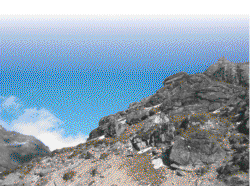Archives
India and China’s tussle over territory
India refrained from issuing a formal statement but a foreign ministry official said: “What the Foreign Minister had said is our stated position; there is no need to add anything to it. The Chinese are entitled to have their view on any issue.”
This is the second time in about a week that the Chinese have taken exception to comments by Mukherjee. Beijing recently rejected an alleged remark about a “China threat” by Mukherjee — as attributed to him in a section of the media — during a speech he made to the National Defence College on November 3.
However, the Indian Foreign Ministry spokesperson denied Mukherjee had made such a comment. “At no point in his speech did the minister use the word ‘threat’ to describe China.”
Mukherjee had recently said, “What are the immediate challenges that we face? In my opinion, the foremost among these would be to cope with the rise of China.”
China reacted by saying that the two countries had agreed not to consider each other a threat and that Beijing posed no threat or security risk to any Asian nation.
The foreign ministry spokesperson, however, said Mukherjee had ‘recognised that there is enhanced engagement with China and… we have today a completely different situation. Economic development has given both countries new capabilities and it is our belief that there is sufficient space for both India and China to grow together and build a co-operative relationship.’
In a speech he recently made in Tawang, Arunachal Pradesh, Mukherjee had “underlined” that India and China “have different perceptions on the question of boundary”, a ministry source said.
The McMahon Line is a line on the map that dates back to the Simla Convention between Britain and Tibet in 1914.
Barely a day after China’s reported disagreement to External Affairs Minister Pranab Mukherjee’s remark on Arunachal Pradesh, Chief Minister Dorjee Khandu said there should not be ‘an iota of doubt’ that this hilly state is an integral part of India.
The Chief Minister was reacting to the reported outburst of Chinese Foreign Ministry spokesman Qin Gang, rubbishing the statement of Mr. Mukherjee that “China is fully aware that Arunachal Pradesh is an integral part of India and no power on earth could snatch it.’’ The Chinese spokesman, while reacting to Mr. Mukherjee’s statement, said, “We deeply regret the Indian side’s remarks that take no regard of the historical facts. China and India have never officially settled demarcation of borders, and China’s stance on the eastern section of the Indo-Sino border is consistent and clear-cut.’’ Mr. Khandu said, “There is not even an iota of doubt that Arunachal, including Tawang, is an integral part of India. All Arunachalees are hardcore Indians and staunch patriots.’’ Mr. Mukherjee, in his inaugural address at the three-day Buddha Mahotsav at Tawang recently had rebuffed China’s claim on Arunachal, asserting that it is an integral part of India and the people of the state regularly elect two representatives to the Lok Sabha and there is an elected Assembly carrying out the responsibility of administration like any of the other 27 states.
“The question of parting with Arunachal’s land or any of its parts does not arise,’’ the minister said at Tawang.
Mr. Mukherjee had pointed out that both India and China are seeking a peaceful solution to the vexed border issue and that India is insisting on a few parameters to sort out the boundary issue with China.

